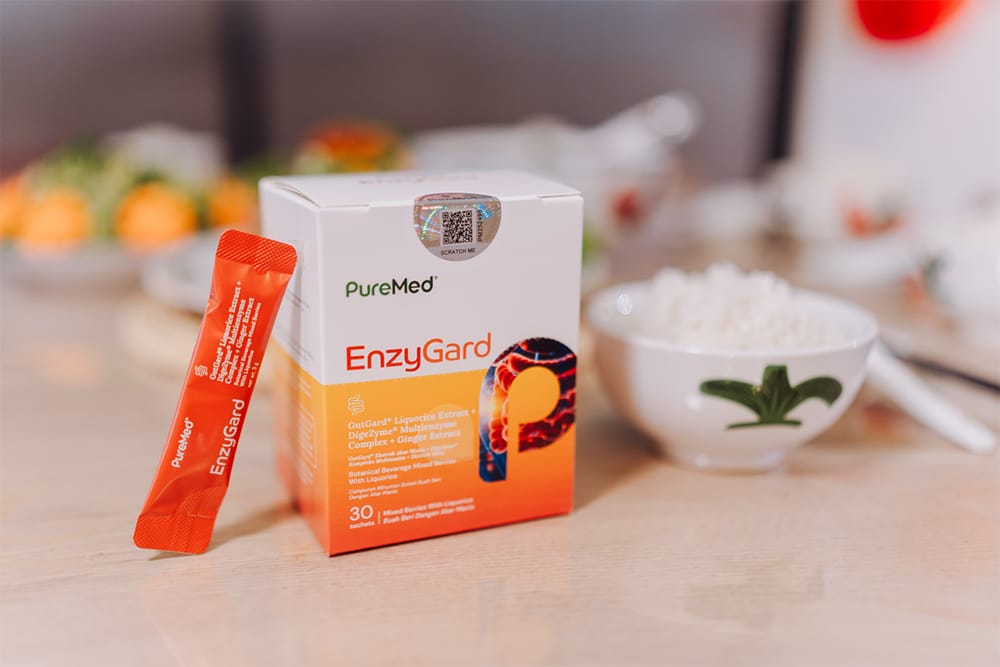No products in the cart.
Health Guides
Digestive and Gut Health
5 Signs You Have Helicobacter Pylori Infection


A Women Facing Stomach Ache Due to H.Pylori Infection
How to Tell If You Have an H. pylori Infection
Helicobacter pylori (H. pylori) is a bacterium that’s surprisingly common and more common than you think. It’s estimated that more than half the world’s population carries it [1], although many don’t even realize they have it. This bacteria can quietly live in your stomach for years, but when it causes trouble, the symptoms are hard to ignore. Let’s break it down and see what you should watch for.
What Is H. Pylori?
H. pylori is a rod-shaped bacterium that settles in your digestive tract, often acquired in childhood. It can spread through saliva, vomit, fecal matter, or contaminated food and water [1]. When left untreated, H.pylori can lead to serious complications, including stomach ulcers and even stomach cancer. So understanding its symptoms and getting timely treatment are essential.
Common Symptoms of H. pylori Infection [1,2]
Persistent Stomach Pain and Gastritis
Persistent stomach pain and gastritis are hallmark symptoms of H. pylori infection. The pain often manifests as a dull ache or a burning sensation, especially when your stomach is empty. While eating might temporarily ease the discomfort, it usually returns shortly afterward.Loss of Appetite and Unintentional Weight Loss
Inflammation and irritation caused by H. pylori can suppress your appetite. Over time, this may result in unintentional weight loss — an important symptom that should not be overlooked.Nausea and Vomiting
H. pylori’s impact on the stomach lining can lead to nausea. In more severe cases, vomiting may occur, sometimes containing blood. If you experience blood in your vomit, seek immediate medical attention.Bloating
A swollen or uncomfortably full feeling in your upper abdomen can signal that H. pylori is interfering with digestion. This bloating often occurs alongside other digestive issues.Chronic Indigestion
Persistent indigestion, frequent burping, acid reflux, or heartburn may indicate the presence of H. pylori. These common symptoms are easy to dismiss but may persist despite dietary changes. Left untreated, chronic indigestion can contribute to long-term nutritional deficiencies and malnutrition.
When to See a Doctor
Don’t ignore symptoms like persistent stomach pain, blood in your vomit or stool, or unexplained weight loss. Early diagnosis and treatment can prevent serious complications such as ulcers or even stomach cancer. If you suspect an H. pylori infection, consult your healthcare provider for testing and appropriate care.
Taking care of your digestive health is essential. By recognizing the signs of an H. pylori infection early, you can get the treatment you need and protect your stomach for the long term.
Support Your Digestive Health with EnzyGard

EnzyGard: 3in1 Natural Solution for Digestive Discomfort
If you’re dealing with H. Pylori infection or other digestive issues, consider trying EnzyGard. EnzyGard contains GutGard which is a natural extract from licorice (Glycyrrhiza glabra), showing promising results in fighting H. pylori infections [3]. Studies found that GutGard helps reduce the bacterial load in the stomach while being gentle on your system. It works by targeting the bacteria’s ability to grow and replicate, making it harder for H. pylori to stick around and cause trouble. Plus, GutGard is well-tolerated, making it a safe and effective alternative for managing H. pylori.
If you’re looking for a natural way to support your gut health, EnzyGard might be a great option to consider as it is formulated with GutGard, DigeZyme, and ginger extract, providing natural support to combat H. pylori and promote overall digestive wellness.
Click here to learn more about EnzyGard: https://puremed.com.my/product/enzygard/
Reference:
- Centers for Disease Control and Prevention. (2024). Helicobacter pylori. In CDC yellow book: Health information for international travel. Retrieved from https://wwwnc.cdc.gov/travel/yellowbook/2024/infections-diseases/helicobacter-pylori
- Öztekin, M., Yılmaz, B., Ağagündüz, D., & Capasso, R. (2021). Overview of Helicobacter pylori Infection: Clinical Features, Treatment, and Nutritional Aspects. Diseases (Basel, Switzerland), 9(4), 66. https://doi.org/10.3390/diseases9040066
- Puram, S., Suh, H. C., Kim, S. U., Bethapudi, B., Joseph, J. A., Agarwal, A., & Kudiganti, V. (2013). Effect of GutGard in the Management of Helicobacter pylori: A Randomized Double Blind Placebo Controlled Study. Evidence-based complementary and alternative medicine : eCAM, 2013, 263805. https://doi.org/10.1155/2013/263805
Recommended Articles
Join Our Newsletter
Sign up now to receive the latest news and promotions.
Shop
Learn
Support
KKLIU: 2136/2022 © 2023 PureMed. All rights reserved.

